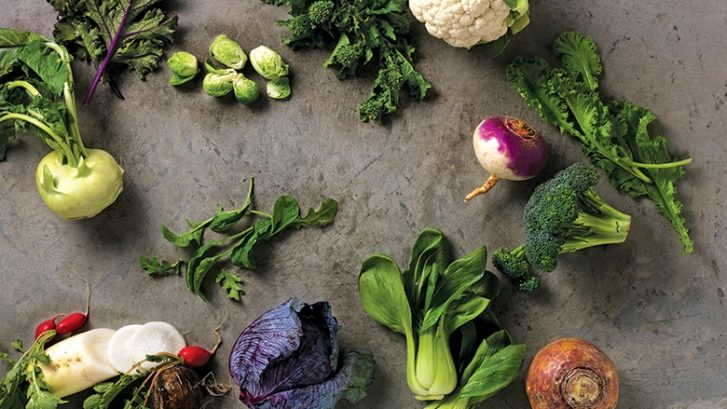Can Vegetables Save Your Life?
When your concierge doctors in Jupiter, FL at MD 2.0, discuss a healthy diet with our patients, we often mention “fruits and vegetables” as a key part that dietary regime.
One particular class of vegetable has been receiving extra attention recently: the cruciferous vegetables: broccoli, kale, cabbage, watercress, arugula, brussels sprouts, bok choy, rutabaga, collard greens, radishes, and cabbage.
This is because of a study reported in Oxford’s Annals of Oncology which found that consuming just one serving of cruciferous vegetables a week over a two-year period lowered the risk of breast, colon, and oral cancer by 17%, esophageal cancer by 28%, and kidney cancer by 32%.
Another study in China found that people who at just six ounces of cruciferous vegetables a day reduced their risk of heart disease by nearly 20%.
An even earlier article published in the Journal of the American Dietetic Association, which reviewed existing studies, showed that at least 70% of them found a link between cruciferous vegetables and protection against cancer.
What accounts for this remarkable effect?
Several theories have been proposed. One says that these vegetables are especially high in vitamins A, C, E, and K, and folic acid, all of which have known cancer-fighting properties when consumed as food (as opposed to taking vitamin supplements). Another contends that the high fiber in these vegetables account for the much of the results, especially in combating colon cancer. A third links the vegetables to a reduction in the proliferation of so-called free radicals, known to be a prime trigger of various types of cancers in the body.
Finally, cruciferous vegetables contain the most sulfur-containing glucosinolates of any food group, and glucosinolates are known to break down into cancer-protecting compounds, so this explanation appears to hold the most weight, though it could be a combination of all of the above. Glucosinolates are also responsible for the pungent odor and bitter taste that cause some people to turn away from these super-veggies. But, as with some drugs, sometimes the least-tasty medicine can do the most good.
And the further (somewhat) unpalatable news for those who don’t like the taste is that, the closer to raw you eat these vegetables, the more glucosinolates are available to the body. Therefore, if you cook them into the green mush that so many people do, you’ll be losing much of their cancer-fighting properties, as well as their nutritional value. It also doesn’t help overall dietary health to smother them in heavy cheese sauces and salad dressings.
Eating “right” is not always the easiest thing to accomplish in our fast-food culture, but your direct primary care doctors at MD 2.0 in Jupiter, will continue to urge the healthy path. Please contact us with any related questions.

